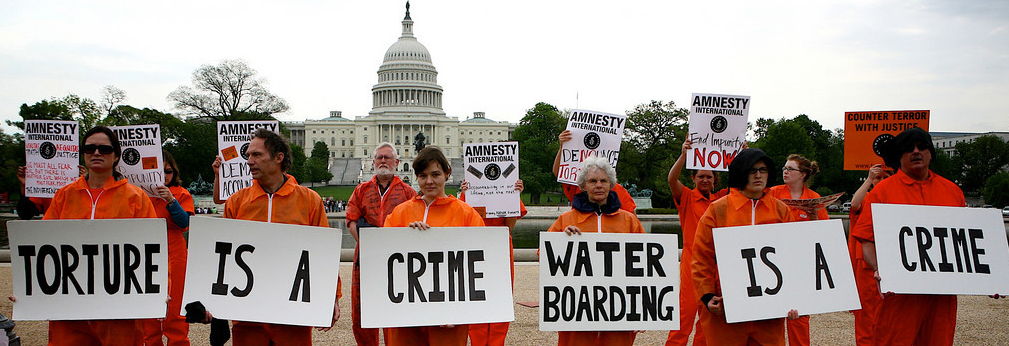
Too little, and much too late. CIA Director John Brennan this week declared that the CIA would refuse to engage in waterboarding in the future, even if ordered to do so.
This was the latest in a recent string of headline-grabbing proclamations from current and former U.S. officials insisting that, if faced with the dilemma between following orders or rejecting torture, they would reject torture.
As welcome as these promises are, they ring hollow. That’s because the same U.S. intelligence community was already faced with that exact dilemma, and they got it wrong.
John Brennan is exactly right that interrogators should refuse orders to carry out torture and other cruel, inhuman and degrading treatment, but he’s wrong that it’s a viable option in the first place.
As a reminder, torture is illegal under both domestic and international law. But the senior officials responsible for devising, authorizing, and ordering unlawful detainee abuse have so far evaded investigation or prosecution by the U.S. government. Free from fear that they may face justice, those same individuals actually churn out memoirs detailing and justifying the torture that they oversaw, unconcerned with the possibility of criminal prosecutions.
It’s a dangerous precedent to set. It sends the message that torture is an option that some officials may nobly choose not to exercise, instead of a hard line that law and morality forbid in all cases without exception.
Thankfully, there have been meaningful changes to help protect against a future return to torture. Landmark legislation was passed last year to strengthen changes already made through executive order. But until there are consequences for the crimes that were committed, policymakers may regard torture as a policy option that’s ready to be dusted off and put back to use in the future, if circumstances seem to justify it.
“We tortured some folks.”
That’s how President Obama memorably summarized the systematic abuse of detainees carried out in his predecessor’s “war on terror.” Waterboarding may be the most iconic symbol of the era, but there was more. The treatment included sexual abuse, other injury, and even death.

This is not a secret – human rights organizations have documented the crimes and lack of justice for years. A landmark Senate report last year spelled out the torture in excruciating detail. If one wanted to learn about CIA and military detainee torture practices, there are thousands upon thousands of pages available to read.
From the mountains of documentation, a pattern emerges: when faced with the choice to defy orders or to embrace torture, the U.S. government embraced torture. And it provided cover for all who did the same. Both through a CIA-run secret detention and rendition program, and through military prisons in Iraq and Afghanistan, the U.S. government constructed a powerful infrastructure that not only delivered immoral and unlawful acts of torture, but also provided built-in impunity for the abusers.
The recent promises not to return to torture are a welcome development, but arrive too late for the individuals who already suffered at the hands of the U.S. torture regime.
The death, injury, and psychiatric damage endured by those who were tortured must never be repeated. As the news cycle continues to place torture squarely on the national debate stage, it is crucial that the actual lives impacted by torture not be forgotten.
As fear and hate continue to seep into the public consciousness, and the global war continues to prove itself endless, it is more important than ever to draw firm boundaries. Each person has a right to be free from torture simply by virtue of their humanity, and it’s a right that requires constant vigilance. No amount of fear can justify returning to torture, and only real consequences for past actions can protect against future abuses.
Words aren’t enough – there must be a shift from impunity to accountability. Only then can the United States truly avoid repeating its tortured past.
This blog was originally posted on The Hill.
